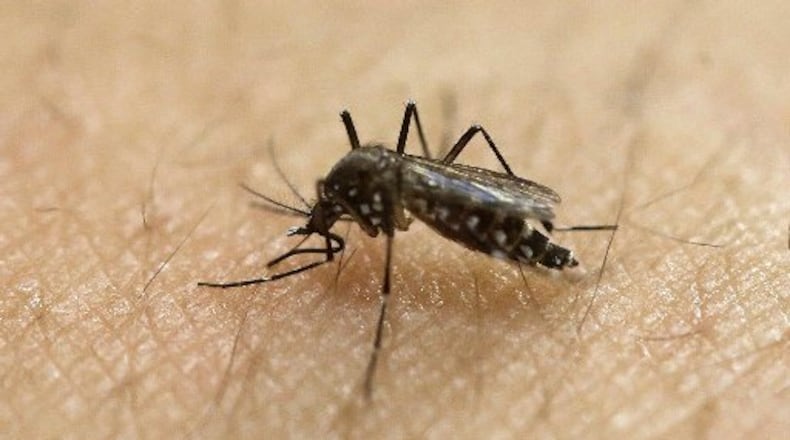As of Aug. 27, there have been eight human cases of West Nile in Ohio and one death this year, according to a news release.
In 2017, there were 34 cases and five deaths in Ohio.
The potentially serious illness is commonly spread by the bite of an infected mosquito.
About 80 percent of those infected do not show any symptoms, according to the release.
However, up to 20 percent of those with West Nile will have mild symptoms, such as body aches, swollen glands and fever.
Symptoms reportedly can last a few days or several weeks.
Approximately one in 150 people infected develop a serious case of West Nile. Symptoms include headache, high fever, stupor, neck stiffness, coma, disorientation, convulsions, tremors, paralysis, muscle weakness and vision loss, according to the release.
There is no vaccine to prevent West Nile virus. However, there are steps people can take to protect themselves.
Preble County Public Health suggested the following to help prevent West Nile virus:
- Use EPA-registered mosquito repellent on exposed skin
- Wear clothing treated with permethrin or another EPA-registered repellent
- Wear light-colored clothing, long-sleeve shirts or jackets and long pants
- Avoid outdoor activity during peak mosquito hours
- Use mosquito netting when sleeping outdoors or in unscreened structures
- Install or repair screens on doors and windows
Public Health also suggested the following to decrease mosquito populations:
- Empty standing water on a regular basis
- Discard trash and other water-holding containers on your property
- Dispose of discarded tires properly
- Drill holes in tire swings to drain water
- Check and clean clogged roof gutters
- Clean and chlorinate swimming pools, even if they aren't being used
- Aerate ornamental pools or stock them with mosquito-eating fish
- Consider using products containing Bacillus thuringiensis israelensis to control mosquito larvae in containers too large to empty
About the Author
